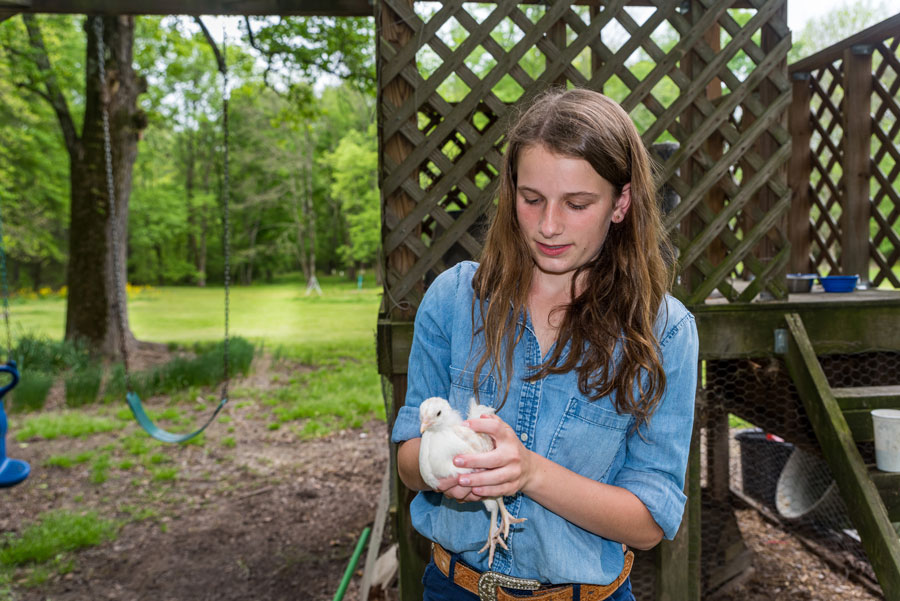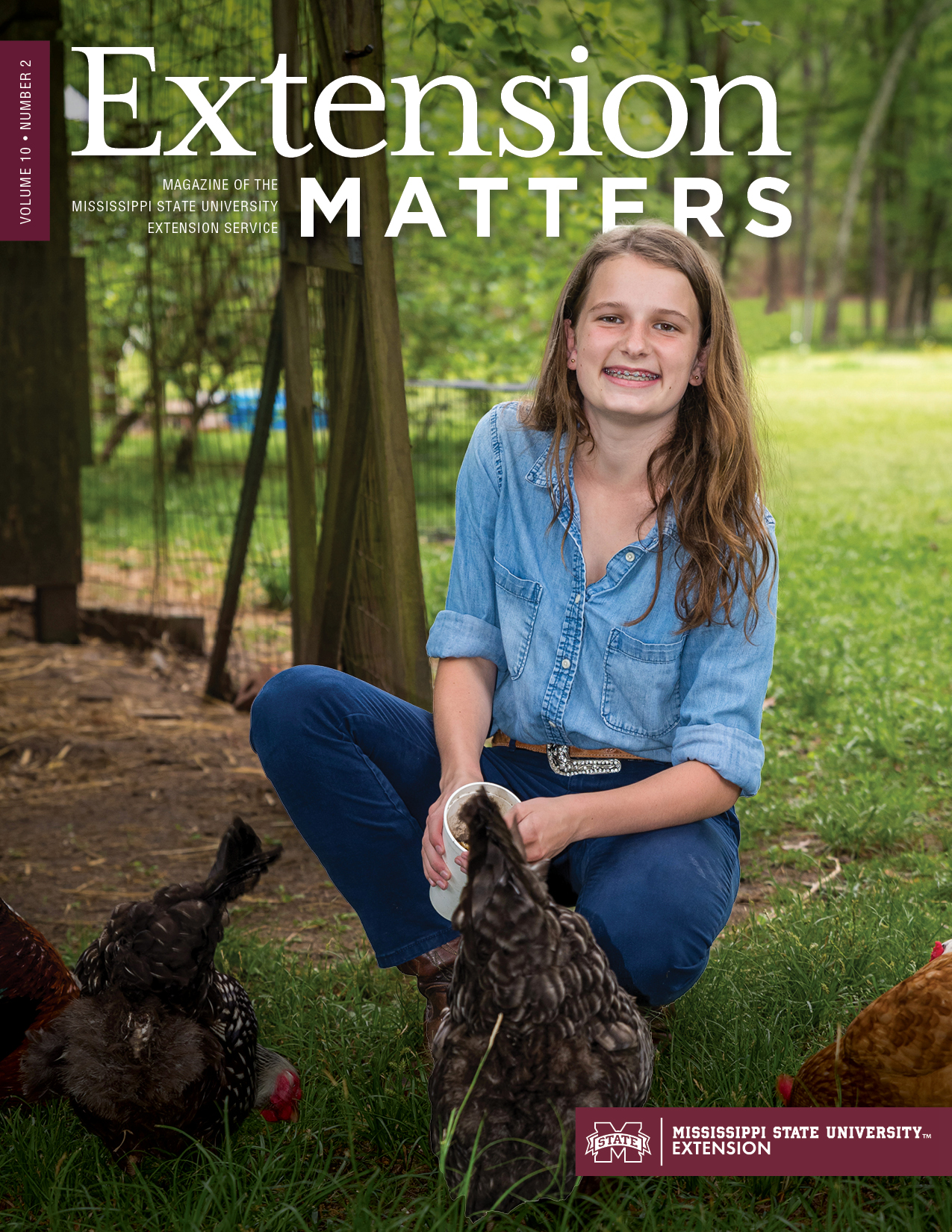Extension in Action

Lucy Turnage, Oktibbeha County 4-H’er
— Lucy Turnage,
Oktibbeha County 4-H’er
“The 4-H Poultry Chain is important because it teaches kids responsibility and where food comes from. 4-H’ers are looking after newly hatched chicks, and they learn how to properly care for these animals. From egg-laying to biosecurity, these children are learning how a chicken goes from an egg to an adult bird and everything it takes to make that happen.”
— Thad Moody,
Extension agent in Oktibbeha County
4-H Poultry Chain Project teaches life skills
Story by Leah Barbour • Photos by Kevin Hudson
WHO:
Children who enjoy hands-on learning and want to showcase their accomplishments and compete against fellow participants can join the 4-H Poultry Chain Project. All 4-H’ers, including Cloverbuds, ages 5–7; junior 4-H’ers, ages 8–13; and senior 4-H’ers, ages 14–18, are eligible to participate and compete at the county level, and junior and senior 4-H’ers can also compete at the state level. All participants are judged on the live birds and their record books. An optional showmanship category is also available to 4-H’ers who would like to showcase their presentation skills and what they learned from their project.
WHAT:
The 4-H Poultry Chain Project teaches 4-H’ers the art of husbandry, how to raise their own flocks, how to keep a record of their progress, and critical life skills for the future. By participating in the 4-H Poultry Chain Project, 4-H’ers gain knowledge in many different poultry management practices, including brooding temperatures, feeding and providing water for the birds, implementing important biosecurity measures, and recording birds’ immunizations and feed schedules. 4-H’ers also learn about the different breeds of chickens and how to care for and handle eggs.
WHEN:
Families should talk to their local county Extension agent in December or January to order chicks, which are delivered in mid-May. Official registration to participate occurs April 1–June 15, and 4-H’ers prepare birds for shows throughout the summer. Local county shows are held in August and September, and the state show is held on the second Friday of the Mississippi State Fair in October.
WHERE:
The 4-H Poultry Chain Project is available in all 82 Mississippi counties. Contact your local county Extension agent to participate! An Extension office is open in every county. Children raise their birds at home, and while chickens do not require as much space to grow as other livestock, they still need regular attention.
HOW:
The Mississippi State University Extension Service delivers this 4-H youth development program, and MSU poultry science instructors, professors, and graduate students develop guides and provide information as needed to ensure the participating 4-H’ers succeed.



